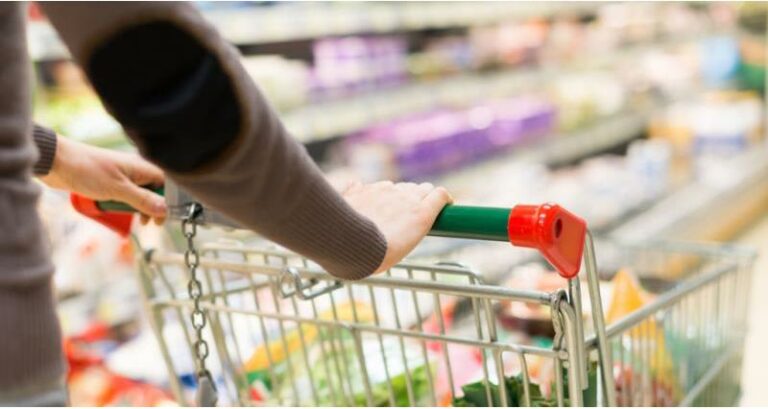The latest figures from Kantar show take-home grocery sales rose by 11.4% during the 12 weeks to 27 December 2020, a period spanning both the November national lockdown and Christmas. December was the busiest month ever for British supermarkets as tightening restrictions and the closure of restaurants, bars and cafés across most of the country meant shoppers spent £11.7 billion on take-home groceries in the past four weeks alone.
“December is always an incredibly busy time for supermarkets, but take-home grocery shopping is usually supplemented by celebrations in restaurants, pubs and bars – with £4 billion spent on food and drink, excluding alcohol, out of the home during the normal festive month,” said Fraser McKevitt, head of retail and consumer insight at Kantar. “This year, almost all those meals were eaten at home and retailers stepped up monumentally to meet the surge in demand. Recognising this, a number of grocers took the unusual decision to close on Boxing Day and give their teams a well-earned break.”
The Government’s announcement of tighter restrictions across much of the country coincided with freight delays at Dover and ongoing Brexit trade deal negotiations in the final days before Christmas. “Uncertainty around a deal and images of lorries sat at Dover meant consumers shopped earlier than usual and Monday 21 December was the busiest shopping day of the year. Fifteen million households, more than half the entire population, visited a grocer at some point that day and spent a collective £819 million. This is a real step change from recent years when consumers have typically completed their ‘big shop’ closer to Christmas Day. We had expected 23 December to be the most popular date in 2020, based on where the holiday fell in the week this year.”
Fewer people around the table meant that overall spending on Christmas dinner staples was muted and growth was well behind the market at 4%. “Without guests to host, it seems many families decided to pare things back slightly and the performance of traditional dinner items reflects this. Six and a half million households still bought a turkey for roasting during December, a similar number to last year, but spend on whole birds was down 5% and some seized the opportunity to mix it up, with sales of pork roasting joints increasing by 19%, fresh fish by 20% and whole chickens by 7%,” McKevitt said.
Rounding out a year of strong performance for frozen food, Iceland achieved growth of 20.8%. While the freezer aisles account for 39% of Iceland sales, its performance has been bolstered by other parts of the store like fresh fruit, vegetables and confectionery.
Tesco sales rose by 11.1% this period, driven by the continued success of its premium Tesco Finest brand, which found its way into more than a quarter of shopping baskets during the 12 weeks. Meanwhile, sales at Sainsbury’s increased by 10.7% year on year and at Asda by 7.8%, with shares standing at 15.9% and 14.3% respectively. Sales at Morrisons increased by 13.1% compared with the same time last year as its market share moved up by 0.1 percentage points to 10.4%, its highest level since June 2019.
Off the back of its recent voucher scheme, which encouraged shoppers to spend more than £40, sales at Lidl increased by 15.2% and it gained 0.2 percentage points of market share. Waitrose’s share remained flat at 5.0%, while total sales rose by 11.7%. Co-op sales were up by 9.8% and Aldi by 6.3%.

Previous ArticleNFU welcomes government consultation into gene editing
Chloe Ryan
Editor of Poultry Business, Chloe has spent the past decade writing about the food industry from farming, through manufacturing, retail and foodservice. When not working, dog walking and reading biographies are her favourite hobbies.

